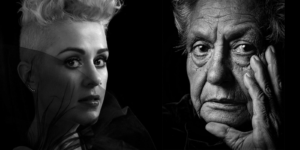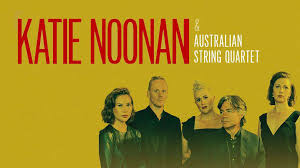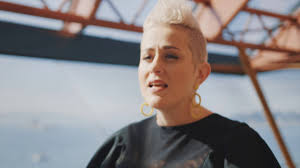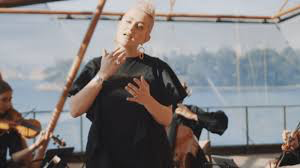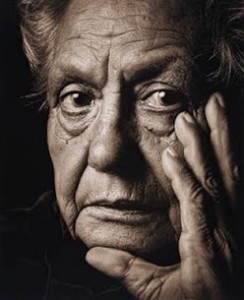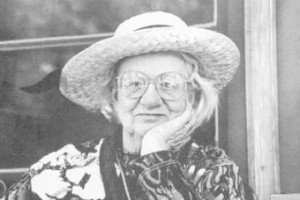
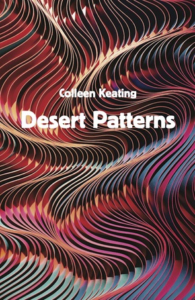
A double joy . . . my newest poetry collection Desert Patterns is also short listed in the Society of Women Writers Book Award for 2020. adding to my excitement about Hildegard of Bingen being given the great honour of short listing.
Desert Patterns is a collection of poetry which takes us into the inland we often call the outback.
When we think of the outback its often the centre of the country, the heart of the land that comes to mind,. Sunsets over desert plains, vibrant red dirt, towering ghost gums and crisp starry sky nights.
In Desert Patterns you will experience: –
our extensive Top End Journey to Kakadu, Bungle Bungle Geikie Gorge the Gibb River Road, we meet memories of Jandamarra thriving towns and towns closed down .
my 10 day walking trip of the Larapinta Trail with the well know writer and playwright Jan Cornell and a group of wriers
our flight over Lake Eyre in flood
with poem in honour of Oodgeroo Noonuccal
and reflective poems about my experience at Myall Creek including a poem I read at the 70th Anniversary since the massacre.
Only 94 pages but packed with imagery and story of our wonderful continent.
Introduction
Australians are becoming more coastal dwellers. We sit on this veranda, enjoy the coastal breeze.
To venture too far into wilderness is a challenge. Even in the city, it is easy to become impatient with nature, for it follows its own laws. Trees drop leaves and branches, their roots wreck paths.
Animals eat our plants, (my ring-tail possums love my parsley), cockatoos eat solar wires, brush turkeys renovate gardens.As for the bandicoots and echidnas that lived in our garden, they have left long ago. Even the blue-tongue lizards are rare now.
Thomas Berry, environmentalist and eco-theologian, writes,
“this generation has lost interaction with nature, we are talking to ourselves.”
More and more we need to talk to the rivers, deserts, mountains, forests and grasslands.Walk in their way, listen to what they have to say, begin a new conversation and become intimate again with the natural world.
Such experiences bring us closer,
to the heart of our land,
to the spirit of country,
to the soul of what it means to be a human being.
When we listen, this land sings to us, holds us, nurtures us. This land is the common ground that we share.
This small blue planet is the common world of our existence.
Desert Patterns is a collection of poetry that touches the membrane between two worlds
with the breath of wildness and our inland journeys.
Colleen Keating
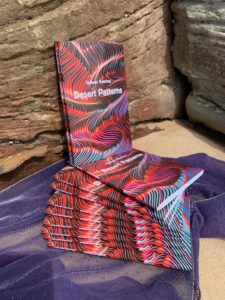
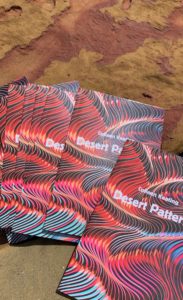
DADIRRI
Aboriginal writer and elder Miriam-Rose Ungunmerr-Baumann has given us
the word ‘dadirri’ – from the language of the Aboriginal people
of the Daly River region, Darwin, NT.
Dadirri is inner, deep listening and quiet, still awareness.
It recognises the deep spring that is inside us. We call on it and it calls to us.
Miriam-Rose explains,
“When I experience dadirri, I am made whole again. I can sit on the riverbank
or walk through a stand of trees; even if someone close to me has passed away,
I can find my peace in this silent awareness. There is no need of words.
A big part of dadirri is listening.”
She continues,
“This was the normal way for us to learn – not by asking questions.
We learnt by watching and listening, waiting and then acting.
My people are not threatened by silence. They are completely at home in it.
They have lived for thousands of years with Nature’s quietness.”
Dadirri also means awareness of where you’ve come from, why you are here,
where are you going and where do you belong.
“Our Aboriginal culture has taught us to be still and to wait. We do not try to hurry
things up. We let them follow their natural course – like the seasons.”
from ‘Edge of the Sacred’ Conference At White Gums Honeymoon Gap, West MacDonnall Ranges,
Alice Springs. 2016..
A Covid launch. in Alice Springs . on 15th March 2020. A week before the pandemic was declared and we locked down . But already in Alice Springs there was a sensitivity and concern about the virus spreading . It was not appropriate to continue our desire to launch with a celebration at the Olive Pink Botanical Garden Cafe.
We flew to Alice Springs unknowing that in a week we were on one of the last planes out of Alice Springs and home in time to lock down. For the Covid launch I read a poem to the wallaby who was hanging around in the Cafe at Olive Pink Botanical Gardens.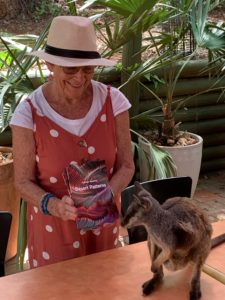
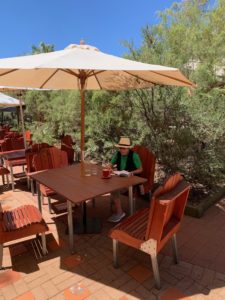
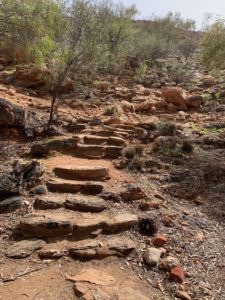
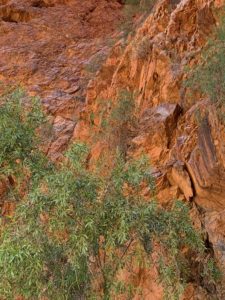
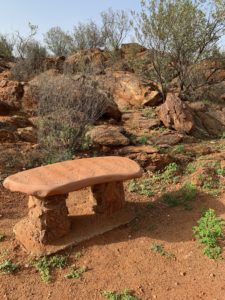
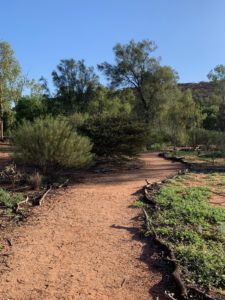
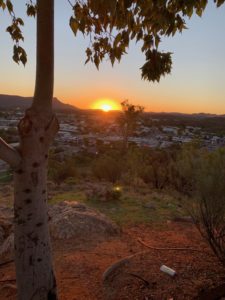
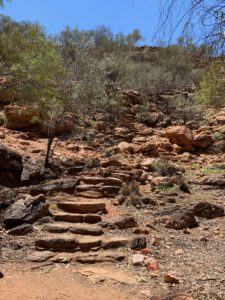
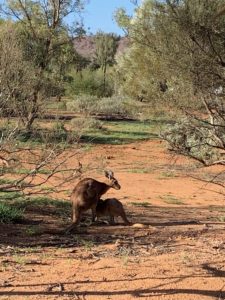

On the back cover are some enticing comments.
Colleen’s poetic journey invokes the deep spirituality of our landscape. She immerses us in ‘a multitude of gorgeous images’ as we we stand in Tunnel Creek remembering Jandamarra, marvel with Monet at Kakadu’s ‘blazing-blue lilies’ and dream with cicadas: ‘is it a place the gods keep/to seduce the lost like me?’
Every step of the way, ‘Desert Patterns’ will entrance you. Pip Griffin
Colleen Keating in her distinctive Australian voice combines sensitivity to place with clear, powerful free verse. Her images are both striking and profound.
Again as in her previous collections, her poetry is underpinned by a gentle spirituality from a woman’s perspective. John Egan
Take time to enter the world of this poetic landscape. Colleen Keating invites us to listen – with all our senses. Margaret Hede
Following on the publication of her award-winning poetry collection Fire on Water in 2017, Colleen Keating, a Sydney poet, has continued to search for a sense of place in country – a land that is timeless and always changing. Much country has been handed back to its traditional owners, while mining companies and pastoralists continue to maintain their position. Aboriginal art has flourished and more people are searching for a place to call home.
Colleen has also had published by Ginninderra Press, A Call to Listen and a highly acclaimed verse novel, Hildegard of Bingen: A poetic journey. She has also co-authored Landscapes of the Heart, Picaro Poets, with John Egan.

